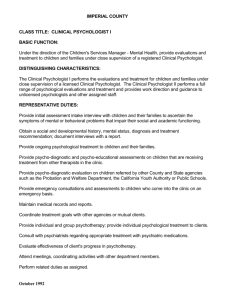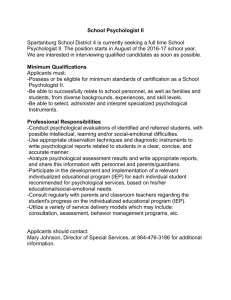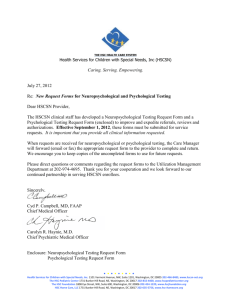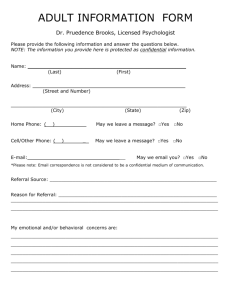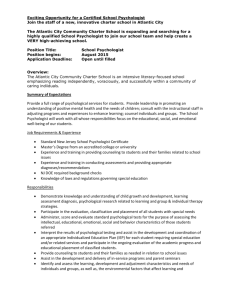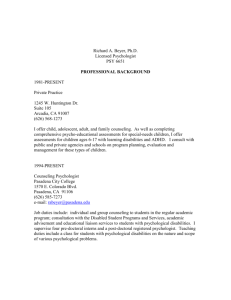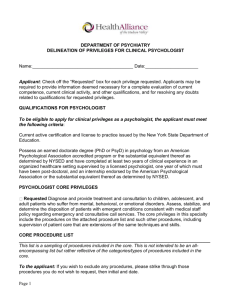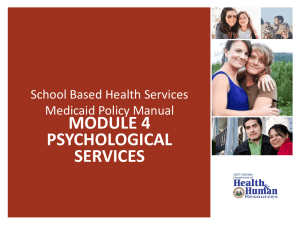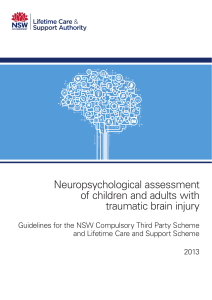Psychological Testing
advertisement
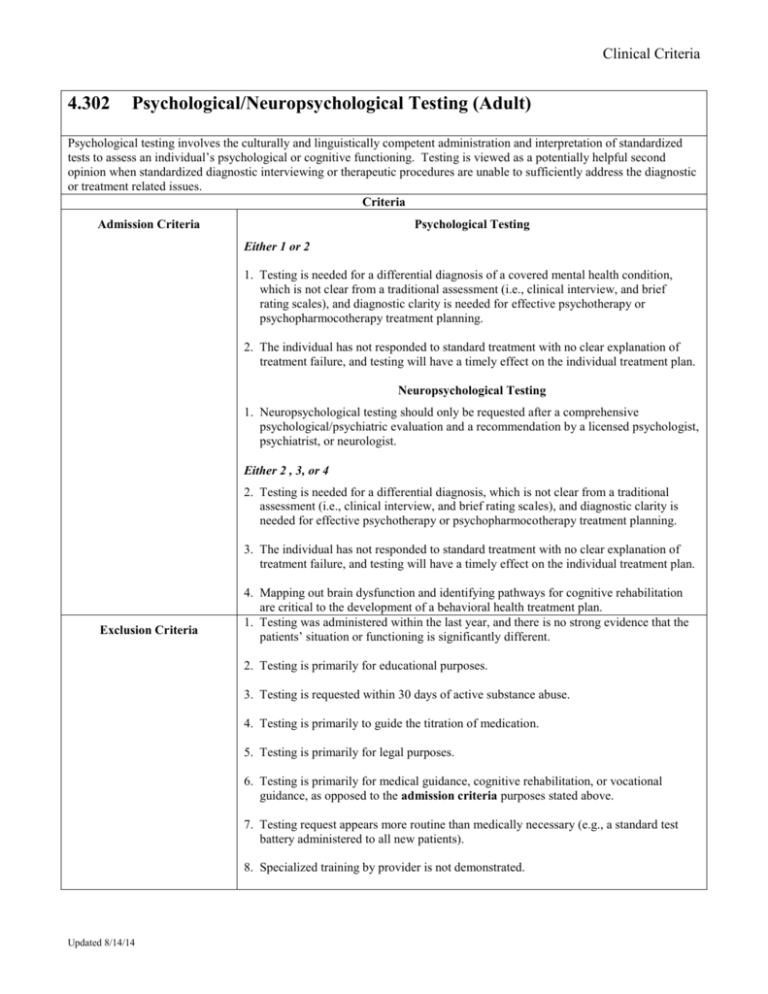
Clinical Criteria 4.302 Psychological/Neuropsychological Testing (Adult) Psychological testing involves the culturally and linguistically competent administration and interpretation of standardized tests to assess an individual’s psychological or cognitive functioning. Testing is viewed as a potentially helpful second opinion when standardized diagnostic interviewing or therapeutic procedures are unable to sufficiently address the diagnostic or treatment related issues. Criteria Admission Criteria Psychological Testing Either 1 or 2 1. Testing is needed for a differential diagnosis of a covered mental health condition, which is not clear from a traditional assessment (i.e., clinical interview, and brief rating scales), and diagnostic clarity is needed for effective psychotherapy or psychopharmocotherapy treatment planning. 2. The individual has not responded to standard treatment with no clear explanation of treatment failure, and testing will have a timely effect on the individual treatment plan. Neuropsychological Testing 1. Neuropsychological testing should only be requested after a comprehensive psychological/psychiatric evaluation and a recommendation by a licensed psychologist, psychiatrist, or neurologist. Either 2 , 3, or 4 2. Testing is needed for a differential diagnosis, which is not clear from a traditional assessment (i.e., clinical interview, and brief rating scales), and diagnostic clarity is needed for effective psychotherapy or psychopharmocotherapy treatment planning. 3. The individual has not responded to standard treatment with no clear explanation of treatment failure, and testing will have a timely effect on the individual treatment plan. Exclusion Criteria 4. Mapping out brain dysfunction and identifying pathways for cognitive rehabilitation are critical to the development of a behavioral health treatment plan. 1. Testing was administered within the last year, and there is no strong evidence that the patients’ situation or functioning is significantly different. 2. Testing is primarily for educational purposes. 3. Testing is requested within 30 days of active substance abuse. 4. Testing is primarily to guide the titration of medication. 5. Testing is primarily for legal purposes. 6. Testing is primarily for medical guidance, cognitive rehabilitation, or vocational guidance, as opposed to the admission criteria purposes stated above. 7. Testing request appears more routine than medically necessary (e.g., a standard test battery administered to all new patients). 8. Specialized training by provider is not demonstrated. Updated 8/14/14 Clinical Criteria 9. Interpretation and supervision of neuropsychological testing (excluding the administration of tests) is performed by someone other than a licensed psychologist with a specialty in neuropsychology. 10. Measures proposed have no standardized norms or documented validity. 11. The time requested for a test/test battery falls outside ValueOptions ® ' established time parameters (and no clinical rationale was provided to justify a longer time period). 12. Extended testing for ADHD has been requested prior to provision of a thorough evaluation, which has included a developmental history of symptoms and administration of rating scales. 13. Symptoms of acute psychosis, confusion, disorientation, etc., interfering with proposed testing validity are present. 14. Administration, scoring and/or reporting of projective testing is performed by someone other than a fully licensed psychologist, or other mental health professional whose scope of training and licensure includes such testing. Continued Stay Criteria Does not apply. Discharge Criteria Does not apply. Note the psychologist needs to determine which assessment tools to use based on their assessment of the individual and the questions posed by the consultation request. Any testing that requires more time or materials than has been initially approved will require further utilization management consideration. The peer to peer review will be conducted by a licensed psychologist. Updated 8/14/14
